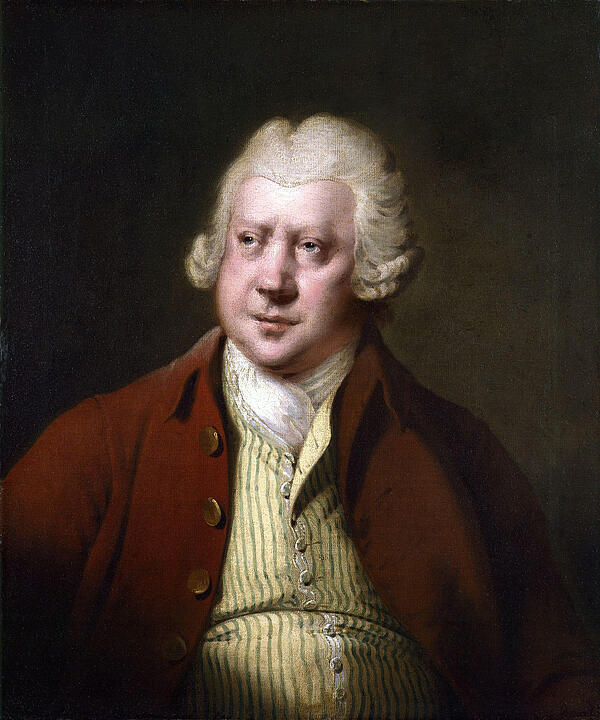Richard Arkwright
Born in 1732, Richard Arkwright is considered by many to be the father of Britain’s factory system. He was both an inventor and entrepreneur who is credited with inventing the spinning frame - the basis for the mass-production of yarn.
Arkwright grew up in Preston, Lancashire. His parents couldn’t afford to send him to school, so instead he was taught by his cousin and apprenticed to a barber and wigmaker. It was during this time that he came up with his first invention - a waterproof dye for use on periwigs.

After the death of his first wife, Arkwright became an entrepreneur. In 1769 he patented the spinning frame, which became known as the water-frame. This made the manufacture of yarn inexpensive, and the great expansion of the cotton industry possible.
The great strength of the machine was that it could work around the clock - assuming it did not suffer any faults - and it also required few people to maintain it. Other than a skilled engineer, all of the other workers in a factory could be unskilled. This resulted in cheap leader. Moreover, children became an increasingly popular option because - due to their size - they were able to crawl underneath machinery to do repairs, other without the need to stop the machine.
By the time of his death in 1792, Arkwright has amassed huge wealth. His invention had allowed for the efficient and profitable factory system that would dominate the Industrial Revolution.
See also: Factories in the Industrial Revolution
MLA Citation/Reference
"Richard Arkwright". HistoryLearning.com. 2026. Web.
